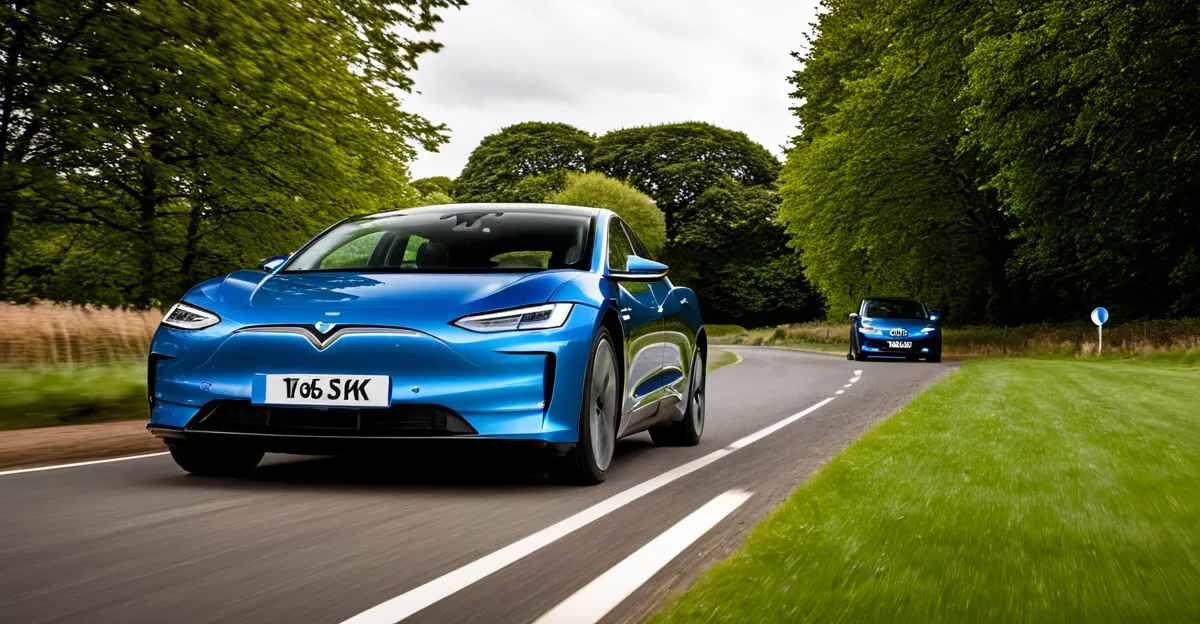Immediate Impact of Electric Cars on UK Transportation
Electric cars UK are reshaping the UK transport system at a noticeable pace. The EV adoption rate has surged in recent years due to growing environmental awareness and improved model availability. This has led to visible transportation changes such as fewer petrol vehicles on the roads and modifications in parking infrastructure to accommodate electric vehicles.
Consumer behaviour is evolving as more people consider the practicality and cost savings of owning electric cars UK. Car ownership patterns are shifting toward EVs, stimulated by lower running costs and government incentives. Public transport has also started adapting; some bus fleets incorporate electric vehicles, reducing pollution in urban areas.
Also read : How is sustainable manufacturing being implemented in the UK automotive industry?
Early impacts include the rise of electric car-sharing schemes and charging points becoming standard in residential and commercial spaces. This transition challenges traditional fuel-station reliance, pushing the UK transport system toward greener alternatives. Overall, immediate effects show a growing commitment to sustainability and a gradual but steady transformation of the UK transport landscape.
Environmental and Economic Effects of Electric Vehicles
The rise of electric cars environment UK initiatives is closely tied to their significant role in reducing carbon emissions. Electric vehicles (EVs) produce fewer greenhouse gases during operation compared to petrol or diesel cars, contributing directly to the carbon emissions reduction targets set by UK governments. Importantly, the shift to electric cars UK not only improves air quality in urban areas but also supports broader environmental goals.
Also read : How is the UK automotive industry integrating AI into vehicle design?
Beyond emissions, the electric vehicle economy in the UK is expanding, creating new jobs in manufacturing, battery technology, and sustainable energy sectors. This growth fosters a green economy that benefits from EV adoption while driving innovation across multiple industries. However, lifecycle emissions from battery production and disposal remain a concern. Addressing these challenges requires improvements in battery recycling and sustainable sourcing to ensure the full EV benefits are realised without undue environmental cost.
Thus, while electric cars UK clearly offer environmental advantages, careful management of their economic and ecological footprints is crucial. Enhancing recycling technologies and responsible resource use will strengthen the positive impact of electric vehicles on both the environment and the UK economy.
Infrastructure Developments Supporting Electric Vehicles
The rapid growth of electric cars UK demands robust EV charging infrastructure UK to support increased vehicle use. Expansion efforts focus on increasing the number and accessibility of electric vehicle charging stations, both in urban centres and rural areas. This expansion ensures convenience, allowing users to recharge at home, work, or public locations.
Integration with the UK energy grid is critical for sustaining this growth. Enhancing EV grid capacity involves upgrading existing networks to handle increased electricity demand without compromising reliability. Sustainable energy sources, such as solar and wind, are increasingly paired with charging stations to reduce overall carbon footprints.
Technological innovations drive further progress. Rapid charging enables vehicles to regain battery life in under an hour, addressing range anxiety. Wireless charging trials are underway, promising effortless, cable-free recharging at designated spots. These infrastructure advancements are vital for encouraging further EV adoption rate increases and securing the future of the UK’s transport system.
Ultimately, growth in EV charging infrastructure UK is not just about numbers but also about efficiency, accessibility, and sustainable integration, essential elements for supporting electric cars UK nationwide.


